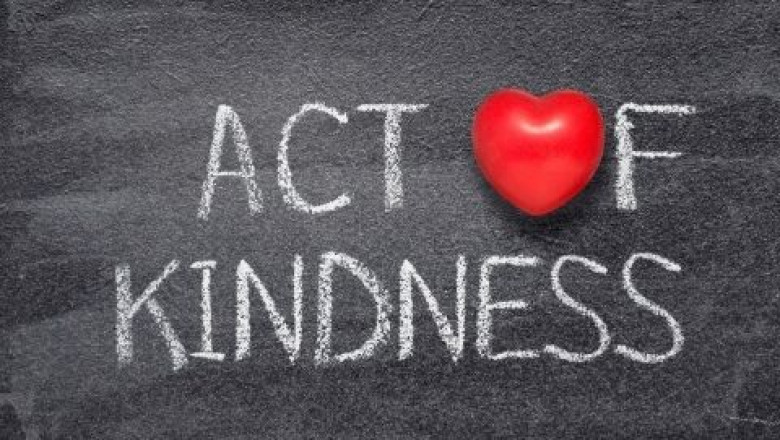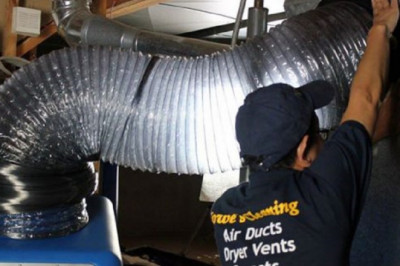views

In a world where people often focus on grand achievements or dramatic gestures, it’s easy to overlook the quiet power of small acts of kindness. Yet, research and human experience consistently remind us that even the simplest compassionate actions like a smile, a kind word, or a helping hand can have an impact far greater than we imagine.
Kindness not only nurtures relationships but also strengthens communities, improves well-being, and creates ripples of positivity that extend far beyond the original act.
The Ripple Effect of Kindness
One of the most remarkable aspects of kindness is its ripple effect. When someone experiences a thoughtful gesture, they are more likely to pass that kindness along to others. This creates a chain reaction that spreads positivity through families, communities, and even workplaces.
A simple “thank you” or offering assistance to someone in need can inspire others to do the same, building a culture where empathy becomes contagious.
The Science Behind Kindness and Well-Being
Modern psychology and neuroscience confirm that acts of kindness boost emotional health. Performing or receiving small gestures of kindness releases “feel-good” hormones such as oxytocin and serotonin, which reduce stress and increase happiness.
Studies also show that consistent kindness strengthens mental resilience and contributes to longer, healthier lives. By doing something as simple as holding the door open or checking in on a friend, you not only uplift someone else but also enhance your own sense of purpose.
Building Stronger Connections Through Kindness
At its heart, kindness is about connection. Taking the time to notice and respond to others’ needs shows that you value them, which strengthens relationships.
A thoughtful note, a shared meal, or even remembering someone’s special day with Birthday Blessings or heartfelt Birthday Prayers deepens bonds in ways that material gifts often cannot. Such gestures remind people that they are seen, valued, and loved an affirmation that everyone longs for.
Acts of Kindness in Daily Life
Kindness is not limited to big moments or special occasions; it thrives in everyday life. Small things such as smiling at a stranger, offering directions, or checking in on a friend can leave lasting impressions.
These daily gestures reinforce compassion as a lifestyle rather than a one-time effort, showing that every individual has the power to make a difference.
Kindness in Times of Difficulty
It is often during life’s hardest moments that kindness carries the greatest weight. Offering a listening ear, providing comfort through Healing Prayers for a Friend, or simply being present during someone’s challenges can offer strength when words fall short.
Even Powerful Prayers for Healing or gentle acts of support can bring comfort to someone navigating illness, grief, or personal struggles.
Teaching Kindness to the Next Generation
Kindness is a value that grows stronger when passed on to others, especially children. By modeling compassionate behavior, parents and educators instill empathy in young people.
Encouraging kids to share, volunteer, or write thank-you notes teaches them that small gestures have big impacts. These early lessons create a foundation for a more compassionate society.
The Workplace Impact of Kindness
Workplaces can sometimes feel competitive and stressful, but small acts of kindness among colleagues can dramatically improve morale. Offering appreciation, celebrating milestones, or simply showing patience during a busy day helps build trust and cooperation.
Teams that practice kindness are not only more productive but also more resilient in the face of challenges.
Everyday Opportunities to Practice Kindness
The beauty of kindness lies in its accessibility it requires no special resources, status, or wealth. Opportunities present themselves every day:
-
Holding the elevator door for someone rushing in.
-
Complimenting a colleague on their hard work.
-
Checking in on a neighbor.
-
Offering your seat to someone in need.
-
Writing a quick note of encouragement.
These actions may seem minor, but to the recipient, they can be life-changing moments that brighten their day or even shift their perspective.
Conclusion: The True Power of Kindness
Small acts of kindness matter more than most people realize because they address a deep human need for connection, compassion, and belonging. They ripple outward, fostering stronger communities and better mental health for both the giver and the receiver.
Whether it’s a kind word, Words of Affirmation, a thoughtful prayer, or simply being present for someone, these small actions can transform lives in ways that big gestures sometimes cannot. In choosing kindness, we not only enrich the lives of others but also bring deeper meaning and fulfillment to our own.
FAQs
Q1: Why are small acts of kindness important?
They create positive ripple effects, improving relationships, emotional health, and community well-being.
Q2: How do small acts of kindness affect mental health?
Kindness boosts “feel-good” hormones, reducing stress and increasing happiness for both the giver and receiver.
Q3: Can kindness help during tough times?
Yes, even simple gestures or comforting words can bring hope and strength when someone is struggling.
Q4: How can I practice kindness daily?
Smile, offer help, check on a friend, or share uplifting words small steps make a big difference.
Q5: Do small acts of kindness really make a difference?
Absolutely. Even small gestures can brighten someone’s day and inspire them to spread kindness further.
Q6: Can kindness strengthen relationships?
Yes. Consistent acts of thoughtfulness build trust, deepen connections, and make people feel valued.
Q7: Is kindness only about giving material things?
Not at all. Words of encouragement, listening, or showing empathy are powerful forms of kindness.
Q8: How can I teach children about kindness?
Model it in daily life—encourage sharing, saying thank you, and showing care for others.
Q9: Does kindness benefit the giver as well?
Yes. Scientific studies show kindness boosts happiness, reduces stress, and improves overall well-being.
Q10: Can kindness improve workplace culture?
Definitely. Appreciation and supportive gestures among colleagues increase morale and teamwork.












